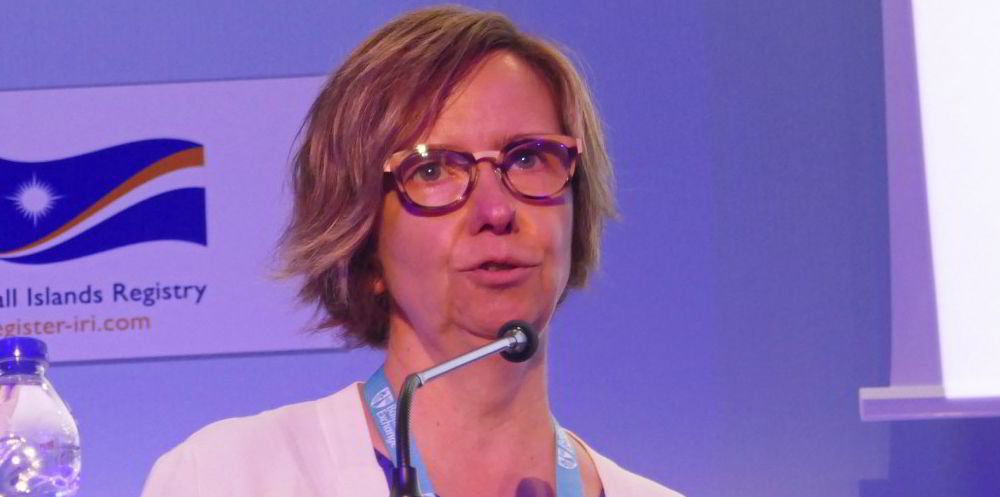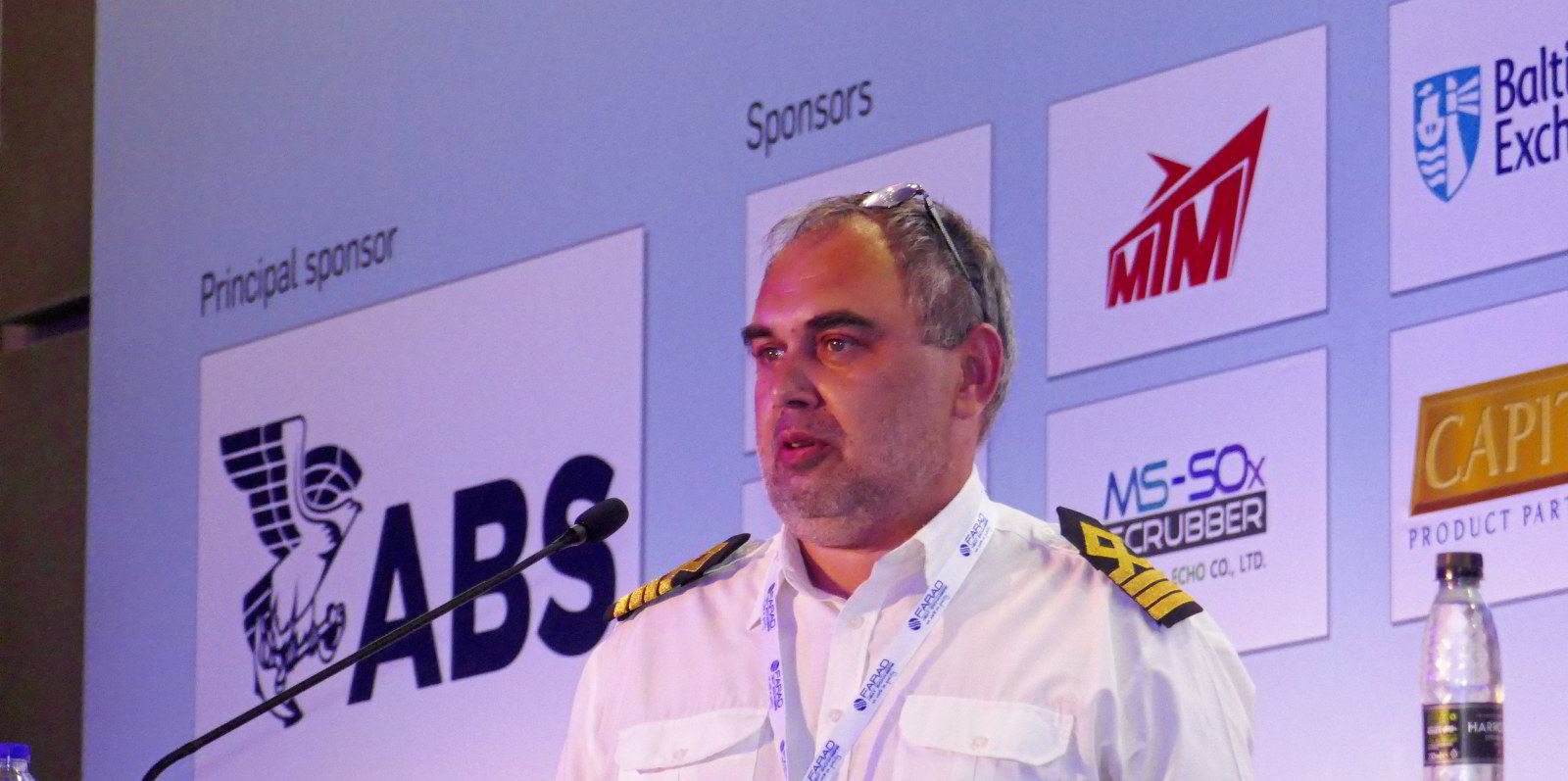Policymakers and shapers at Posidonia called on the International Maritime Organization to agree on a global solution for shipping emissions and prevent regulatory fragmentation, as the Marine Environment Protection Committee met in London this week.
Magda Kopczynska, director of maritime strategy at the European Commission, said there is a long road ahead with respect to how shipping’s carbon emissions will be priced as part of an emissions trading system (ETS).
But it is critical that the IMO shows leadership on the subject and agrees an overarching, international mechanism, she added.
Kopczynska underlined the fact that the European Union’s ETS proposal contains a clause under which the system will be reviewed as soon as the IMO decides on a global solution.
“Trust me, 27 EU member states will not accept that European shipping should be paying twice — once at the European level and once at the IMO. But we need that IMO measure first,” she said, speaking on Tuesday at the TradeWinds Shipowners Forum.
However, German shipowner and Bimco president Nikolaus Schues said owners need to know if and how the EU ETS will be enforced by law.
“The subject that is the elephant in the room [is]: do we have it in the law? Or don’t we?” he asked.
“Who pays for the bunkers, who is responsible for deciding how fast the ship goes, who’s responsible for which route the ship goes — that is the party that should pay the ETS.”
Making these factors a matter of law will give greater freedom of negotiation and empower small to medium-sized shipowners in negotiations with multinational firms and big charterers, Schues added.
He said technological leaps will speed shipping’s energy transition.
“At the moment, emissions are still on the rise. But technological advancement is huge. The hydrogen revolution will be exactly that, it will be a revolution,” Schues said.
But Philippos Philis, president of the European Community Shipowners’ Association, thinks the EU and EC are running the risk of becoming international regulators, which should be avoided.
Click here to follow all TradeWinds’ coverage of Posidonia in our live centre.
“I think only IMO can limit this further regulatory fragmentation,” he told the forum.
Kopczynska is sure that the industry will meet its target of net-zero emissions from shipping by 2050 — but she is only 50% confident that the sector will reach absolute-zero emissions by then.
“In 2018, when the strategy was agreed, I do remember a person very much involved in discussions on the side of shipowners telling me back then that ‘50%? Peanuts! We could deliver more’ — and that’s my faith and trust in shipping. Posidonia is a place to prove that that faith is well-grounded,” she said.
Kopczynska perceives a changing mindset within shipping since the Paris Agreement, the international treaty on climate change, was adopted in 2015.
“There is a definite change of mindset between Paris and today, because nobody on the shipping side is questioning that shipping has to decarbonise, and that’s already something,” she said.
“When Paris was discussed, trust me, many companies would say ‘none of our business’ — you will not hear that comment any more.
“I do believe that in the next five to 10 years, we will see technologies maturing, we will see political agreements of the regulatory framework at an international level following or being complementary to what we have at the EU level and we’ll see the decarbonisation happen.”




